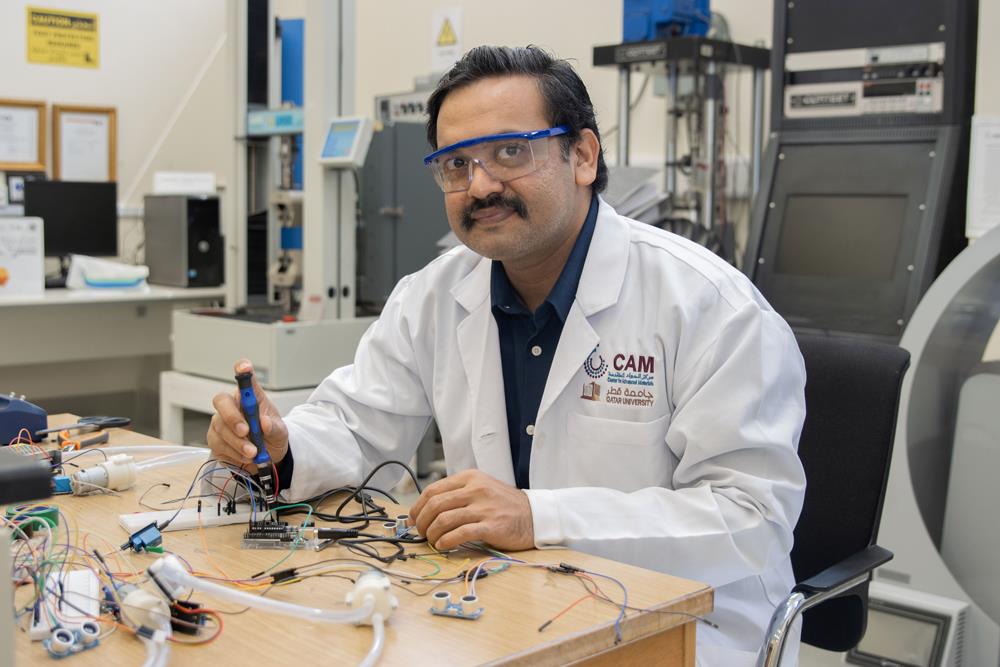(MENAFN- The Peninsula) The Peninsula
Doha, Qatar: The Smart Nano Solutions research group at the Center for Advanced Materials (CAM), Qatar University (QU), under the leadership of Dr. Kishor Kumar Sadasivuni, Research Assistant Professor, has successfully designed and developed a range of cutting-edge sensors with vast applications in environmental and human protection.
These sensors, composed of specialty electronics and materials, demonstrate enormous potential in fields such as food safety, environmental monitoring, biomedical diagnostics, and corrosion detection.
In response to the growing demand for gas sensors capable of detecting and monitoring trace amounts of gas molecules or volatile organic compounds (VOCs), the research group at CAM developed a groundbreaking non-invasive gas sensor. This sensor harnesses volatile organic compounds present in human breath as an analyte to detect various metabolic diseases.
The integration of a smartphone-assisted unit, comprising a portable colorimetric device, allows for real-time and practical application, aiding in the rapid detection of ketones in patients with type 1 and type 2 diabetes or heart failure.
Another significant achievement by the CAM team is the development of an inexpensive paper-based chemosensor specifically designed to monitor the freshness of fish using trimethylamine as the sensing parameter. This sensor has the potential to revolutionize monitoring processes in scenarios such as fish freshness evaluation and diagnosing trimethylaminuria, where swift detection of trimethylamine exposure is crucial. The colorimetric response of the paper sensor changes according to the concentration of trimethylamine, providing valuable insights into the immediate risk in the environment.
For environmental protection, the research group at CAM focused on enhancing the capabilities of corrosion detection. They introduced a novel wireless, self-powered radio-frequency identification (RFID) sensor as a corrosion detector, offering continuous remote monitoring via a software-assisted corrosion monitoring system. By utilising RFID tags embedded within concrete structures and integrating metal bars as part of a circuit, the team achieved real-time, continuous corrosion mapping of buildings.
Furthermore, CAM's team designed a sensitive IoT-based colorimetric sensor prototype. The sensor is capable of detecting formic acid, ethanol, and methanol in the atmosphere, potentially originating from CO2 conversion. The unique RGB values obtained from the sensor prototype upon exposure to test solutions, along with their concentration, provide invaluable data for environmental analysis.
In the realm of biomedical diagnostics, the research group's development of electronic devices capable of converting biomedical signals into measurable electric signals stands out. Notably, a tactile sensor was created to assist surgeons in registering forces applied to surgical tools, ultimately reducing learning time and minimizing patient injuries. Additionally, a wearable piezoresistive pressure sensor capsule, equipped to detect pulse rate and human motion, has been successfully developed.
























Comments
No comment